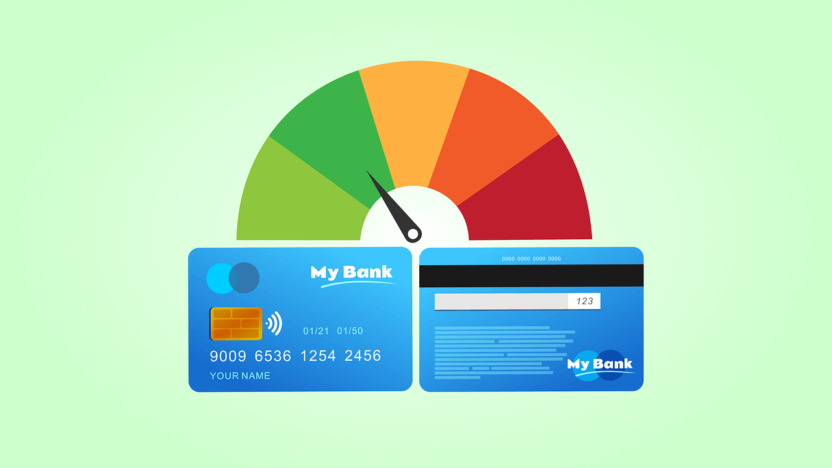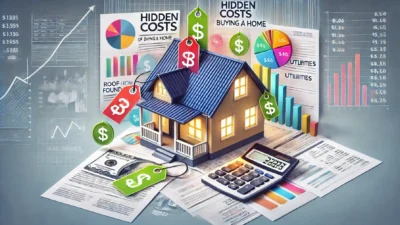Your credit score plays a big role in the home-buying process, but here’s the good news: you don’t need a perfect score to get started! Many first-time homebuyers assume they need excellent credit to qualify for a mortgage, but there are loan options available for a wide range of credit scores.
If you’re thinking about buying a home in Ventura, Oxnard, Camarillo, or anywhere in Ventura County, understanding your credit options can help you move forward with confidence.
How Your Credit Score Affects Your Mortgage Rate
Your credit score doesn’t just determine whether you qualify for a mortgage—it also impacts the interest rate you receive. The higher your credit score, the better your rate, which can save you thousands of dollars over the life of your loan.
Understanding Par Rate vs. Buying Down a Rate
When you apply for a mortgage, lenders determine your par rate—this is the standard interest rate offered based on your credit score, loan type, and market conditions.
- If you have a higher credit score, you’ll receive a lower par rate without having to pay extra fees.
- If you have a lower credit score, your par rate will be higher.
- You can buy down your rate, but it will cost you more in upfront fees.
For example, let’s say two buyers are purchasing a $700,000 home in Ventura County:
| Credit Score | Par Rate | Option to Buy Down to 6.25% |
|---|---|---|
| 760+ Score | 6.25% (Standard) | No extra cost |
| 640 Score | 7.50% | Costs extra to buy down to 6.25% |
Buyer A, with a 760+ credit score, receives a 6.25% par rate with no extra cost. Buyer B, with a 640 credit score, gets a 7.50% par rate, but could pay thousands of dollars to buy it down to 6.25%—a rate Buyer A received automatically.
What This Means for You
- A higher credit score gives you access to the best rates without having to pay extra fees.
- A lower credit score doesn’t mean you can’t get a better rate, but you’ll have to pay for it in the form of discount points, which could cost thousands upfront.
- The difference in monthly payments between a 6.25% and a 7.50% rate can add up to hundreds of dollars per month—and tens of thousands over the life of the loan.
This is why improving your credit score before buying a home can make a huge financial difference. Even a small increase in your score could qualify you for a lower par rate and save you money on your mortgage.
👉 Related: How Fast Can You Get a Mortgage?
What Credit Score Is Needed for a Home Loan?
The type of loan you choose will determine the minimum credit score required:
- FHA Loans: Typically require a 580+ credit score with a 3.5% down payment. If your score is lower, you may still qualify with a larger down payment.
- Conventional Loans: Generally require a 620+ credit score. Higher scores may qualify for better interest rates and lower down payment options.
- VA Loans (for Veterans): No official minimum score, but lenders typically look for 580-620.
- USDA Loans (for Rural Areas): Generally require 640+ for easier approval, but lower scores may still be considered.
If you’re unsure where your credit stands, I can connect you with a trusted lender who can review your score and guide you on what’s needed to qualify.
Don’t Rely on Just One Credit Score—Here’s Why
Many people check their credit score on platforms like Credit Karma or their banking app and assume it’s the same number lenders will see. However, when you apply for a mortgage, lenders pull your score from all three major credit bureaus:
- Equifax
- Experian
- TransUnion
Mortgage lenders don’t just take the highest or lowest score—they use the middle score for loan approval. For example:
- Equifax Score: 720
- Experian Score: 690
- TransUnion Score: 705
- Your Qualifying Credit Score: 705 (middle score)
This is why it’s important not to rely on a single source like Credit Karma, as their scores often differ from what mortgage lenders use. If you’re thinking about buying a home, it’s best to get pre-approved by a lender to see where you truly stand.
How to Improve Your Credit Before Buying a Home
If your score isn’t quite where you’d like it to be, don’t worry—there are steps you can take to improve it before applying for a mortgage:
- Check Your Credit Report: Review your credit history for errors and dispute any inaccuracies.
- Pay Down Debt: Lowering your credit utilization (the percentage of available credit you’re using) can boost your score.
- Make Payments on Time: Even a few months of on-time payments can help improve your credit.
- Avoid Opening New Credit Lines: Too many recent credit inquiries can temporarily lower your score.
- Avoid Closing Old Accounts: Keeping older credit accounts open helps maintain your credit history length, which is a key factor in your score. Closing an account can also increase your credit utilization ratio, negatively impacting your score.
- Work With a Lender Early: A good lender can offer personalized guidance and strategies to improve your credit and get you the best mortgage rate possible.
👉 Related: What Disqualifies You as a First-Time Home Buyer? Avoid These Common Pitfalls
Not Sure Where You Stand? Let’s Talk!
If you’re thinking about buying a home but aren’t sure where your credit stands, let’s connect. I work with experienced lenders in Ventura County and LA County who can help you understand your options.
Even if you’re not quite ready to buy, we can create a plan to get you there. Send me a message or schedule a consultation today!



